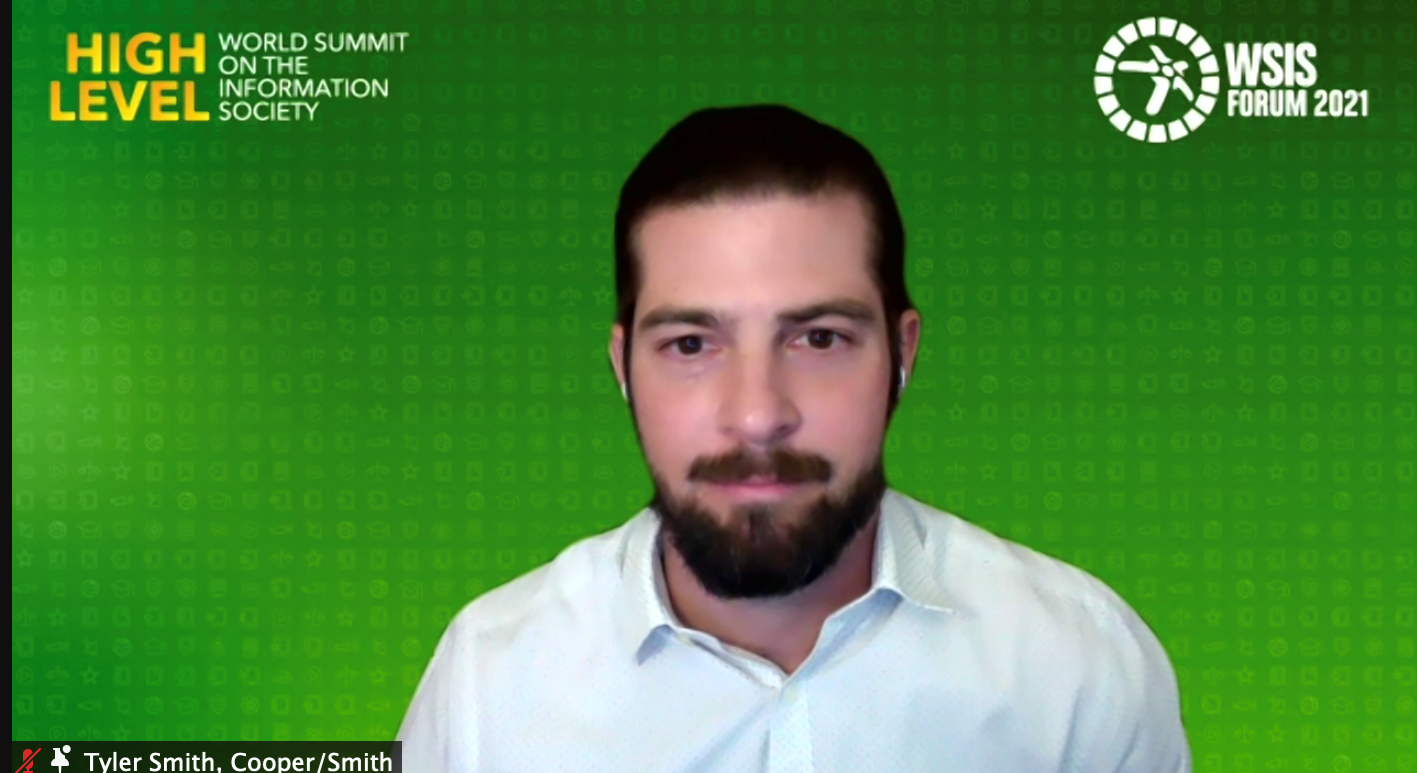Introducing the MD4D Handbook
Digital Impact Alliance, Data-Pop Alliance and Cooper/Smith
Session 305
Mobile network operator (MNO) data refers to data generated from mobile network operators, such as call detail records, profile data, location data, usage data and spend data. MNO data can be combined with other types of data, such as satellite data and traditional data to produce valuable insights for development and humanitarian use cases. For example, insights from MNO data can help governments, development and humanitarian stakeholders understand short-term, long-term and seasonal mobility patterns of people which are key insights in understanding how to reach the people that need the most with needed essential services hence contributing to the SDGs. Using MNO data can also help generate insights that help understand human behavior and income profiling of communities among other uses. Such insights are useful in tracing the impact of development and humanitarian initiatives.
In this session, we will present a guiding resource for mobile for development (MD4D) practitioners and walk through its uses and purpose. To put this into perspective, the MD4D handbook can be used by various stakeholders in the data for development ecosystem particularly decision makers and middle managers across a diverse spectrum encompassing but not limited to: Mobile Network Operators (MNO), National Statistical Offices, National regulatory authorities, NGOs, development practitioners, academic researchers, public sector officials, technical practitioners amongst others.

Rachel works to demonstrate sector-wide collaboration between D4D actors in deploying initiatives that enhance data use for evidence-based decision-making. She joined DIAL in September 2017 as Program Director, supporting program partners in selected countries.
Prior to joining DIAL, Rachel established Malawi’s first technology hub; mHub. Through the hub, she championed the development and deployment of innovative technology solutions across fields such as elections monitoring, citizen engagement and agriculture in Malawi, Zambia, Tanzania, Mozambique and Zimbabwe. She has over 11 years of industry experience spanning academia, development and social enterprise domains.
Rachel is a PhD candidate in computer science at Rhodes University in South Africa. She holds a Master of Science in coding theory and cryptography from Mzuzu University and a Bachelor of Science from the University of Malawi.

Emmanuel Letouzé is the Director and co-Founder of Data-Pop Alliance, a coalition on Big Data and development co-created in 2013 by the Harvard Humanitarian Initiative, MIT Media Lab, Overseas Development Institute, joined in 2016 by the Flowminder Foundation as its 4th core member. He is a Visiting Scholar at MIT Media Lab, a Research Affiliate at HHI and a Research Associate at ODI. He is the author of UN Global Pulse’s White Paper “Big Data for Development” (2012) and of the 2013 and 2014 OECD Fragiles States reports. His research and work focus on Big Data’s application and implications for official statistics, poverty and inequality, conflict, crime, and fragility, climate change, vulnerability and resilience, and human rights, ethics, and politics. He worked as a Development Economist for UNDP in New York from 2006-09 on fiscal policy, post-conflict economic recovery and migration, and between 2000-04 in Hanoi, Vietnam, for the French Ministry of Finance as a technical assistant in public finance and official statistics. He holds a BA in Political Science and an MA in Economic Demography from Sciences Po Paris, an MA from Columbia University School of International and Public Affairs, where he was a Fulbright Fellow, and a PhD from the University of California, Berkeley. He’s also a political cartoonist (‘Manu’) for various publications and media.

As a health economist and policy advisor, Tyler has supported governments and organizations to apply data in a variety of ways to address real-world challenges and support more informed decisions. Methods have included program evaluation, study design, policy analysis, cost and cost-effectiveness analysis, economic modeling and forecasting, systems development and clinical research coordination. Regardless of technique, the ultimate goal has always been the same: apply the right data and tools to answer the right questions. With a specific interest in measuring and promoting efficiency, Tyler aims to ensure every discussion of data presupposes a link between resources and results.
Prior to Cooper/Smith Tyler served as Health Economist and Special Advisor for Efficiency, Accountability, and Strategic Planning to the Office of the U.S. Global AIDS Coordinator (S/GAC), US Department of State. In this role, he served as technical lead for the restructuring of the PEPFAR Country/Regional Operational Plan (COP/ROP) process, primary author of the 2015 PEPFAR COP/ROP Guidance, and lead developer of the supporting analytic tools, data systems, and training materials. Tyler was also the lead for the PEPFAR Expenditure Analysis (EA) Initiative and supporting systems, in 2012 institutionalizing the first cross-agency, results-linked financial accounting system within the U.S. Government development portfolio.
In addition to his time at the State Department, Tyler served as Health Economist for the U.S. Centers for Disease Control and Prevention (CDC), research consultant for CARE (USA) and ACCESS Development Services (New Delhi, India), and Clinical Research Coordinator for the U.S. Department of Veteran Affairs (VA).




